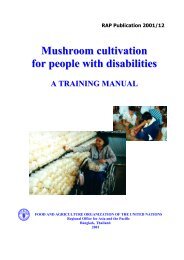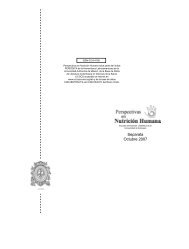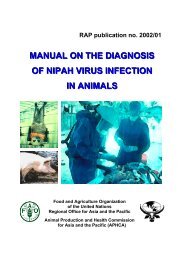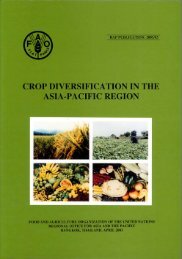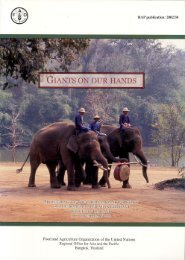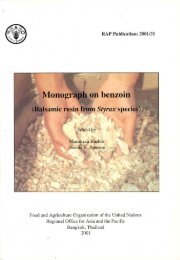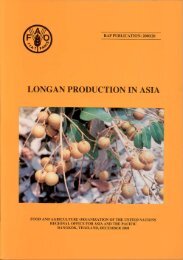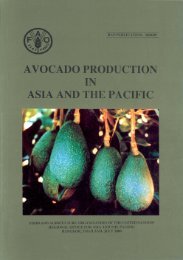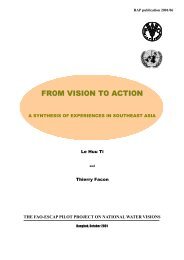Guidelines for humane handling, transport and slaughter of
Guidelines for humane handling, transport and slaughter of
Guidelines for humane handling, transport and slaughter of
You also want an ePaper? Increase the reach of your titles
YUMPU automatically turns print PDFs into web optimized ePapers that Google loves.
<strong>Guidelines</strong> <strong>for</strong> <strong>humane</strong> <strong>h<strong>and</strong>ling</strong>, <strong>transport</strong> <strong>and</strong> <strong>slaughter</strong> <strong>of</strong> livestock 17<br />
However, generally it is obvious that noise increases<br />
physiological stress levels. This refers also to pre<strong>slaughter</strong> <strong>h<strong>and</strong>ling</strong><br />
<strong>and</strong> <strong>h<strong>and</strong>ling</strong> at point <strong>of</strong> <strong>slaughter</strong>. Slaughter in a small, quiet<br />
abattoir produces less stress hormones in animals compared to a<br />
large, noisy commercial plant.<br />
With regard to smell, emitted odours, particularly strange<br />
smells, may cause animals to become unsettled <strong>and</strong> excited. This is<br />
noticeable in animals, which are strangers to each other or to<br />
surrounding conditions. Pre-mixing <strong>of</strong> these animals, or smearing<br />
pigs with litter from a single source will reduce tension <strong>and</strong> fighting<br />
amongst strangers. Many people interested in the welfare <strong>of</strong><br />
livestock are concerned about animals smelling blood. Cattle will<br />
hesitate <strong>and</strong> sometimes refuse to enter a stunning box or restrainer if<br />
the ventilation system blows blood smells into their faces. An<br />
exhaust fan to suck away smells will facilitate entry into a stunning<br />
box. If an animal becomes agitated <strong>and</strong> frenzied during <strong>slaughter</strong><br />
<strong>h<strong>and</strong>ling</strong>, subsequent animals <strong>of</strong>ten become agitated as well <strong>and</strong> an<br />
entire <strong>slaughter</strong> day can turn into a continuous chain reaction <strong>of</strong><br />
excited animals. The next day, after the surrounds <strong>and</strong> equipment<br />
have been washed, the animals will be calm. A stress pheromone in<br />
the blood <strong>of</strong> severely stressed animals can be smelt by others <strong>and</strong><br />
cause excitement. Blood from relatively low–stressed animals may<br />
have little effect on others. Research with cattle <strong>and</strong> pigs indicates<br />
that stress hormones are secreted in the saliva <strong>and</strong> urine. Pigs <strong>and</strong><br />
cattle tend to avoid objects or places, which are contaminated with<br />
urine from a stressed animal.



